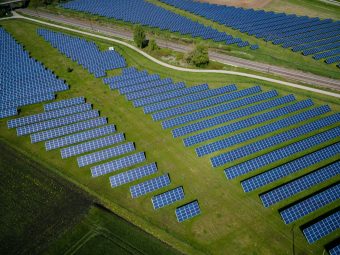
The Heinrich Böll Foundation is a German political foundation that has been active in Serbia for over two decades. During this time, they have supported more than 50 projects in the area of just energy transition, with funding amounting to one million euros. The Foundation is recognized as an organization aligned with green and left-leaning ideas and advocates for a greener and more just society.
„Alongside promoting a democratic political culture, which represents one of the two pillars of our work in the region, we also support climate change and energy policy projects: combating energy poverty, reducing air pollution, and promoting sustainable urban mobility. We have also supported the work of organizations that have initiated a series of strategic litigation cases against polluters in the courts of Serbia and Montenegro”, said Nino Lejava, director of the Belgrade office of the Heinrich Böll Foundation.
We spoke with her about implementing the energy transition, the Foundation’s activities related to environmental protection, educating citizens, involving local communities in the energy transition process, and the European Green Deal.
IN FOCUS:
- Key Plans For North Macedonia’s Energy Future
- The Future od Green Energy in Romania
- Artificial Leather Made From Beer Is Changing The Fashion World
Q: Who should lead the energy transition, and what is essential for its implementation?
A: The energy transition is a complex process in which renewable energy sources such as hydropower, solar, and wind energy continuously replace energy from fossil fuels. Above all, it requires functional institutions and the political will of decision-makers. In this context, we support the concept of civic energy, which should become a key driver of the transition of the energy system toward a local economy based on renewable energy sources through individual initiatives. Through collaboration with local governments and two energy cooperatives in Serbia, the Foundation supports a participatory process that involves hundreds of citizens. It is crucial for a successful energy transition for citizens to be involved in decision-making to reduce the monopoly currently held by large power companies, which influences electricity prices. For the energy transition to be successful, the first thing that needs to be done is for decision-makers in Serbia to adhere to the plans outlined in the Green Agenda for the Western Balkans, where decarbonization is marked as one of the main priorities. Transparent policies and public debate are needed in society, meaning citizens must be included in the process. Finally, for the energy transition to be successful, it must also be just, paying particular attention to citizens significantly affected by the reforms, such as miners in traditional industries. It is essential not to repeat the mistakes of the past when, during the wave of privatization, a large number of people lost their jobs.
Q: What activities does the Foundation undertake in the field of environmental protection and sustainable development policy?

A: Our goal is to support civil society and institutions in Serbia in implementing climate policies. This is in line with the goals of international climate agreements and the commitments made within the EU accession process. The Foundation always develops its programs according to societal priorities and pressing issues that affect citizens. In recent years, our focus has been on energy poverty, energy efficiency, air pollution, and monitoring EU integration in Chapter 27—Environment. Together with partners within the Coalition 27, which brings together civil society organizations that have been monitoring the implementation of Chapter 27 in the field of environmental protection since 2014, the Foundation has produced dozens of studies with recommendations for improving the state of the environment, though unfortunately, only some of these have been recognized and implemented by decision-makers. The annual reports of Coalition 27 systematically address the environmental situation and assess reforms in this sector.
Q: How educated are Serbian citizens about the concept of energy transition, and what should their education be based on?
A: Citizens are often left to their own devices when it comes to informing themselves about the energy transition. The messages they receive from decision-makers are frequently contradictory, sometimes even populist, especially when it comes to phasing out coal and decarbonization, instead of presenting the public and citizens with the obligations Serbia has signed on to, such as shutting down thermal power plants as outlined in the National Climate and Energy Plan, which for the first time provides clear guidelines for phasing out coal by 2050. Many projects support energy efficiency in local governments, some of which have been supported by the Heinrich Böll Foundation. One example is a series of discussions with residential community managers about building energy rehabilitation, financed through loans from the European Bank for Reconstruction and Development (EBRD). The number of citizens who attended these information days shows significant interest in the energy transition, especially given the constant rise in energy prices, particularly electricity. Educating and informing citizens about the energy transition should be the responsibility of decision-makers at the national level; however, we are witnessing that some local governments are more progressive in informing citizens than the ministries themselves.
Interview by Mirjana Vujadinović Tomevski
Read the whole interview in the new issue of the Energy portal Magazine ENERGY TRANSITION



